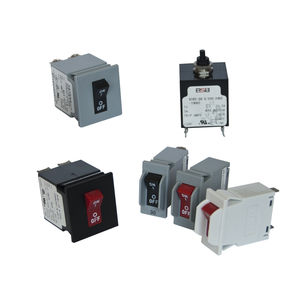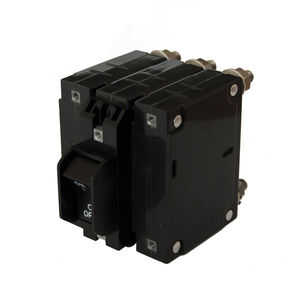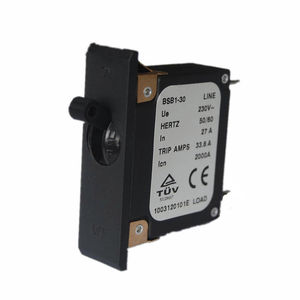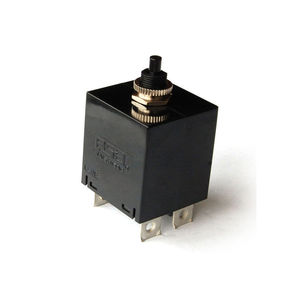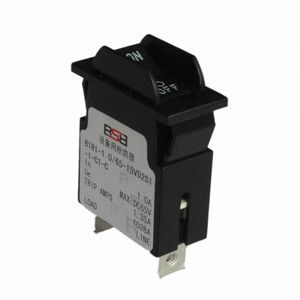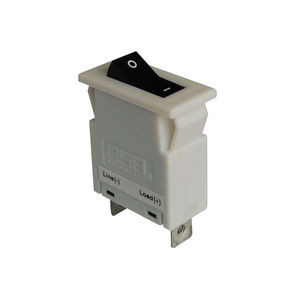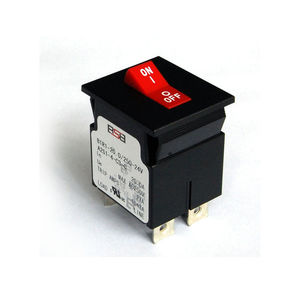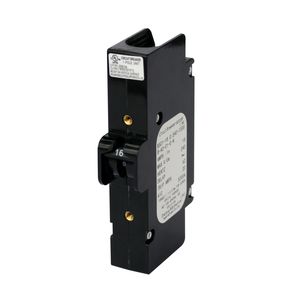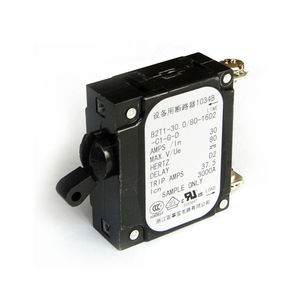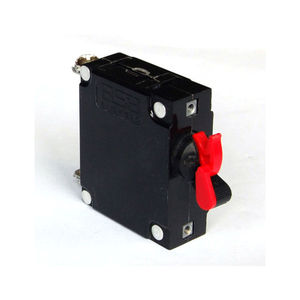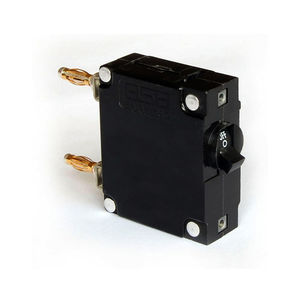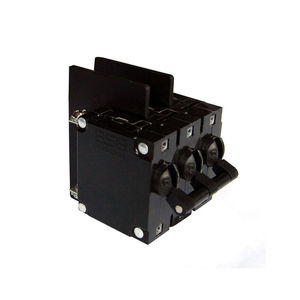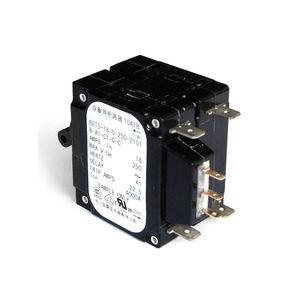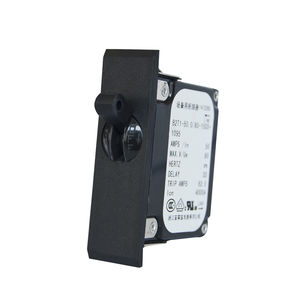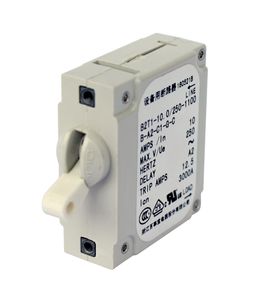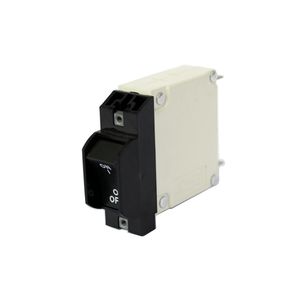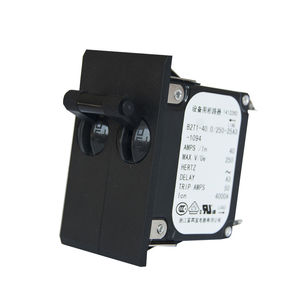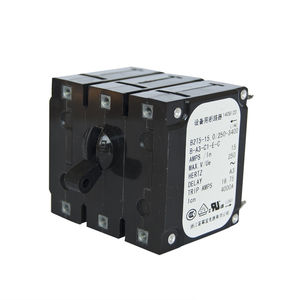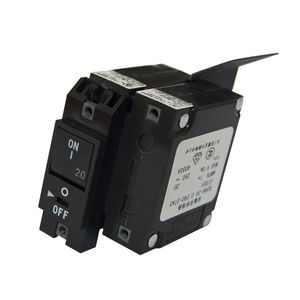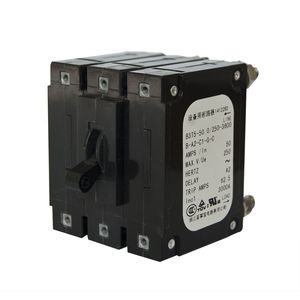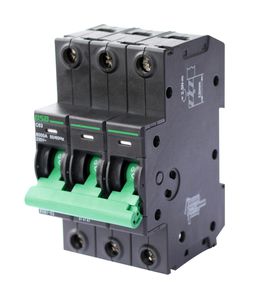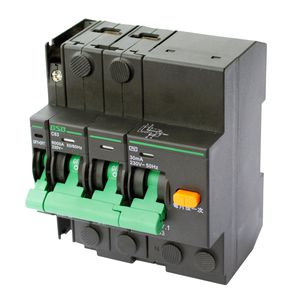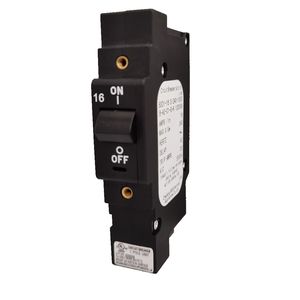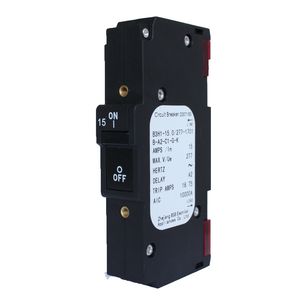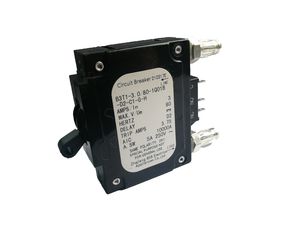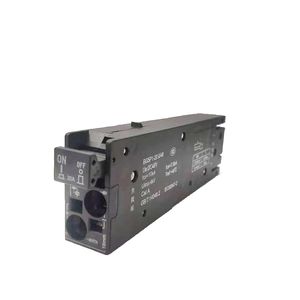
- Electricity - Electronics
- Switch and Relay
- Hydraulic-magnetic circuit breaker
- ZHEJIANG BSB ELECTRICAL APPLIANCES CO.,LTD
- Company
- Products
- Catalogs
- News & Trends
- Exhibitions
Hydraulic-magnetic circuit breaker B2 seriesACDCoverload










Add to favorites
Compare this product
Characteristics
- Type
- hydraulic-magnetic
- Electrical characteristics
- AC, DC, overload, single-phase, 3-pole, 2-pole
- Operating mode
- modular, manual reset
- Applications
- distribution, generator, for network protection, for railway applications, electrical power supply
- Number of poles
- single-pole
- Other characteristics
- molded case, outdoor, rocker switch type, high-performance, fixed
- Primary current
Min.: 1 A
Max.: 50 A
- VAC
Min.: 120 V
Max.: 250 V
- VDC
Min.: 65 V
Max.: 80 V
Description
Circuit Breaker-B2
B2 series product is a hydraulic electromagnetic circuit breaker which our company design and develop by adopting international advanced technology.The circuit breaker consists of shell,operating mechanism,contact arc extinguishing system and hydraulic solenoid tripping device and other parts.The circuit breaker is used in AC50Hz/60Hz,rated voltage DC80V or AC250V equipment network circuit.It is mainly used for a variety of equipment and lines to provide accurate and reliable short circuit and overload protection.
Description
Maximum voltage: 277VAC 50/60 Hz, 80VDC
Current Ratings: 1A to 50A
Auxiliary switch: SPDT,5A 250VAC, 1.0A 80VDC
Operating environment: ‐40℃ to +85℃
Number of poles: 1 pole, 2 poles, 3 poles
Certification: CCC/ VDE/ UL 1077/ UL489
Catalogs
No catalogs are available for this product.
See all of ZHEJIANG BSB ELECTRICAL APPLIANCES CO.,LTD‘s catalogsOther ZHEJIANG BSB ELECTRICAL APPLIANCES CO.,LTD products
Hydraulic Magnetic Circuit Breaker
Related Searches
- Single-pole switch
- Circuit breaker
- Contactor
- Current circuit breaker
- Voltage circuit breaker
- Single-pole circuit breaker
- Distribution circuit breaker
- Alternating current switch
- Power contactor
- Lever switch
- Electromagnetic contactor
- Industrial electric switch
- Panel-mount electric switch
- AC circuit breaker
- MCB circuit breaker
- Overload circuit breaker
- Molded case circuit breaker
- Manual reset circuit breaker
- DC contactor
- DIN rail circuit breaker
*Prices are pre-tax. They exclude delivery charges and customs duties and do not include additional charges for installation or activation options. Prices are indicative only and may vary by country, with changes to the cost of raw materials and exchange rates.


